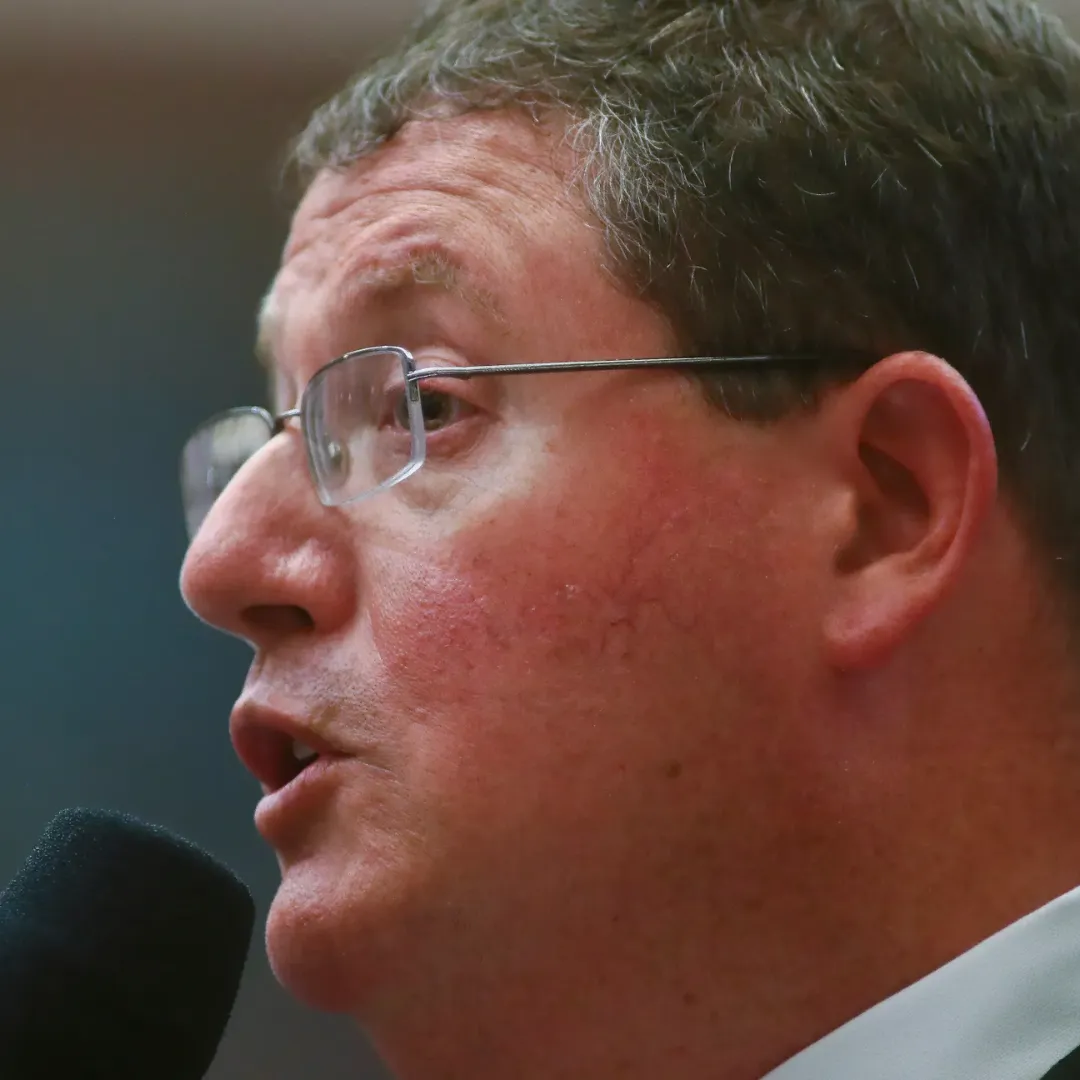
Elon Musk’s ambitious project to reform the federal government under the banner of the Department of Government Efficiency (DOGE) has been nothing short of dramatic.
Musk, the billionaire CEO of Tesla, has now taken on the role of reshaping Washington’s bureaucratic infrastructure, pushing aggressively for the kind of cost-cutting and restructuring that has made him both a hero and a villain in the eyes of different political factions.
As the Trump administration’s point man on government reform, Musk has pursued his mission with relentless intensity, even as his controversial ideas and past comments have fueled heated criticism.
But it is clear that, in his zeal to “revolutionize” the system, Musk has not only ruffled feathers within the federal government but has actively sought to dismantle what the Democratic Party has spent decades building.
From streamlining agencies to slashing budgets, Musk’s DOGE is not just cutting waste—it’s chipping away at the very foundations of government programs that were created to serve the public.
Musk, appearing on Fox News to address mounting concerns about DOGE’s aggressive cuts, went on the defense, claiming that he is being careful and compassionate in his approach.

The billionaire emphasized that DOGE’s goal is not to decimate federal agencies but to overhaul them with precision, focusing on what he believes to be necessary cuts while ensuring that the most essential functions are preserved.
“We want to measure twice, if not thrice, and then cut once,” Musk explained during his appearance, presenting his cost-cutting measures as thoughtful and deliberate. However, the execution of this vision has not been without its challenges.
DOGE has already made multiple missteps—such as the wrongful firing of employees at the Department of Energy, including those working with nuclear stockpiles—and Musk has admitted to making errors, though he insists that such mistakes are part of the process.
However, critics argue that these “careful” cuts are not just bureaucratic reforms but a direct attempt to undo the progress made by the previous Democratic administrations.
From agencies created to protect the environment to those focused on public health and welfare, Musk’s vision of efficiency appears to be directly challenging the priorities that have defined government policy for years.
Musk’s aggressive approach has increasingly been seen as a direct attack on the political infrastructure built by the Democratic Party.

His drive to slash government spending and shrink the federal workforce threatens to unravel years of policies aimed at protecting the most vulnerable populations—policies that Democrats have championed for decades.
By targeting departments like the U.S. Agency for International Development (USAID) and the Department of Agriculture, Musk and DOGE seem intent on dismantling programs that Democrats have worked tirelessly to establish.
The result of these cuts could have far-reaching consequences. Programs that serve marginalized communities, such as those aimed at fighting hunger, disease, and climate change, are now in jeopardy.
DOGE’s insistence on eliminating or streamlining such agencies may be framed as an effort to curb waste, but in practice, it risks weakening America’s social safety nets at a time when they are needed most.
This has sparked concern among Democratic lawmakers who view Musk’s cost-cutting measures as an attempt to undo the progress they’ve made over the years.
Critics argue that Musk’s sweeping changes are not the result of careful deliberation but of an ideological drive to reshape the government in ways that benefit the wealthy elite while leaving working-class Americans vulnerable.
Musk’s approach to dismantling federal programs has been met with increasing resistance. Multiple lawsuits have been filed against DOGE, many of which challenge the department’s ability to access confidential government systems and argue that Musk’s actions are unconstitutional.

A federal judge recently ruled that DOGE likely overstepped its bounds in dismantling USAID, the first major target of its reforms. The ruling suggested that Musk’s team had violated the separation of powers by bypassing the legislative process, further alienating those who view his push as a dangerous overreach.
Even within his own political camp, Musk’s efforts have been met with skepticism. While some Republicans continue to support his cost-cutting goals, others, including former Representative Carlos Curbelo, have criticized Musk for the way he has executed his vision.
Curbelo argued that while the goal of reducing government waste is popular, the execution has been flawed. “What he’s trying to do is conceptually popular,” Curbelo said, “but the execution is where he’s lost a lot of the public.”
This growing backlash has not stopped Musk from doubling down on his mission. During a recent interview with Fox News, Musk presented himself as a reformer on a “rehab tour,” trying to rebuild his image and assure the public that DOGE’s work is being done with care and precision.
However, his attempt to reassure the public seems more like a defense of a vision that is already proving to be divisive and unpopular with many Americans.
While Musk and his DOGE team have made the case for cutting costs, there’s an irony that cannot be ignored: In their quest for efficiency, they’ve introduced mistakes that cost taxpayers even more.

DOGE’s online campaign to showcase spending cuts has been plagued by errors, such as misreporting the value of contracts and accidentally canceling critical programs like Ebola prevention.
These mistakes have undermined the very message Musk is trying to convey—that the government can be made more efficient by eliminating waste.
Musk’s own comments have added fuel to the fire. “If we were to approach this with the standard of making no mistakes at all, that would be like saying someone in baseball’s got to bat a thousand. That’s impossible,” Musk said, downplaying the serious ramifications of his missteps.
For many, these “mistakes” represent a dangerous lack of accountability, and the very same government programs Musk is targeting have been the safeguards that prevent such errors from spiraling into major crises.
Musk’s vision of efficiency has raised questions about his true motivations. Is his goal to streamline government for the benefit of the American people, or is he pushing an agenda that benefits the wealthy elite, while sacrificing public services that have long been the backbone of America’s social safety net?
By cutting back on programs that protect the most vulnerable Americans and seeking to eliminate large swaths of the federal workforce, Musk’s DOGE could disproportionately affect low-income communities, the elderly, and those who rely on public assistance.
Many see this as an attempt to prioritize the interests of the business world and billionaires like Musk himself, while neglecting the needs of ordinary citizens.

In his drive to eliminate waste, Musk may be undermining the very structures that have protected American citizens for generations.
The federal government, after all, is responsible for ensuring the safety and well-being of the public, and its employees work tirelessly to carry out these responsibilities. Musk’s approach, which prioritizes cutting spending over maintaining services, risks destabilizing this crucial infrastructure.
Musk’s efforts to reform the government under the banner of DOGE are part of a larger political struggle between the growing influence of corporate elites and the progressive policies championed by the Democratic Party.
Musk’s aggressive push to remake the government isn’t just a policy issue—it’s a battle for the future of American democracy.
As Musk continues to push for sweeping changes to the federal bureaucracy, it’s clear that his mission is more than just about efficiency.

It’s about disrupting the systems that have been in place for decades, and in doing so, challenging the values and ideals that the Democratic Party has fought for.
Whether this overhaul will be successful in the long run remains to be seen, but it’s clear that Musk’s efforts are shaking up the political landscape in ways that could have lasting consequences for both the Republican and Democratic parties



